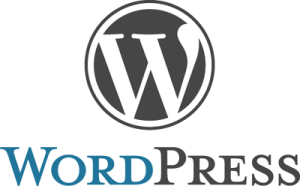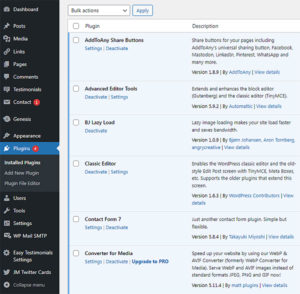Let’s sit down and discuss the time, skill, methods, knowledge and fees involved for the build and launch of a business website that actually helps you sell.
Video Transcript
Hello, it's Darren from Ilkeston Web Design. Let's talk about what a website realistically costs. The going rate is usually higher than you imagined.
For what I do, on average, it's £600 to £5,000. It depends on whether or not it's an information-only website, or if it's an e-commerce website. If it's a very complex e-commerce website, it could be more than 5k.
So that gives you an idea. If price is the sole deciding factor, I would keep in mind how much time and effort goes into websites. We'll talk about that in this video. We'll break it down.
People underestimate cost, of course, so that's why I'm going to set the scene. I'll give you some context, and I'll try and use metaphor and analogy to cut down on the amount of technical jargon.
The purpose of the website? What is it for? What do you want it to do? Do you want to drive leads and inquiries, or are you selling products directly online? Because those are two different kinds of websites.
If it is leads and inquiries, we want to make sure that it is functioning as a marketing and sales machine, right? We want to attract people. We want to engage people, and we want to convert people. We want to support the entire sales process. Content tends to be the thing that's missing from most websites.
You can build a technically sound website, and it can look very nice. It can look very beautiful, but it could be useless because the words just aren't there. Or it could be that there's no video. This video is embedded on my website, and you're watching it right now. So this helps to engage visitors. It drives sales. It supports sales. The website should be the nucleus or the center of the business universe.
Let's understand then the different methods of creating a website.
There's two different types of website. At least that's what I'm boiling it down to today because I want to try and keep this simple and straightforward. Content management system – that's one type of website. And custom website – that's the other.
So let's talk about the differences, beginning first with the content management system. Most modern websites are built with a content management system (that's a CMS), it's basically a chassis or a framework which gets you started. It's partially built for you.
So if it was a car chassis, you would have to create your own engine. You'd put your own wheels on it. Your own body work. You'd tune it up and make it look as you want it to be. But the chassis is fundamentally done for you, so you don't have to do that.
That's great because we don't want to spend time doing things that are already done for us. It's a waste of time and money to try and reinvent the wheel which is what we would be doing if we weren't using a content management system.
Wix is a content management system. Yola is a content management system. Squarespace, that's another one. They're okay but they're entry-level, they have limitations. They're not great and if you've used them, you'll know that WordPress, Drupal, Joomla, Magento, those are way better examples of a content management system. They're used by more serious businesses in all industries.
And I like WordPress. WordPress.org, not WordPress.com. WordPress.org, big distinction there. It's essentially free to get started with WordPress.org. It's orders of magnitude more powerful than the other CMSs we just talked about, Wix and Squarespace.
Yes, the code for WordPress.org is free to get started at first but you need to know what you're doing in order to configure it. Don't let the fact that it's free deceive you. Don't think that free must be bad.
Oh, no, no, no, no, not WordPress. This CMS is open source, right? So that means people from all over the world are contributing to it on a daily basis to make it better. Imagine you were building a conservatory and the materials were free. Let's say you had thousands of pounds worth of free materials at your disposal. Now you need someone to build the damn thing but at least the materials will be free which is a huge cost saving right away. Out of the box, it's great because it has all these free themes that you can customise.
Some of the additions to WordPress are paid for and sometimes it is necessary to use paid plugins, extensions and services but for the most part, you can use a lot of the free stuff and that's just fantastic. The White House website... that's the one I'm thinking. You know, the American administration, the White House? Their website is powered by WordPress.org and WordPress powers almost half of the internet.
Watch out for the low quality WordPress people as well, there's people out there selling very hastily constructed WordPress websites which are not the greatest quality and usually the price, you know, £99 for it... I mean, come on! We all know what low quality work looks like when we see it but if we're not an expert in that area then it's difficult to spot a botched job or shortcuts.
Custom websites, on the other hand, these are not content management systems. These are coded by developers basically. It's done by hand. More expensive as a result. If you try to recreate the equivalent of, let's say, the White House website... let's imagine you were trying to recreate that. That would be £30k, £40k, £50k, maybe £100k. Creating it all from scratch... that would be what I consider reinventing the wheel which I see as pointless when you've got WordPress.
So I wouldn't bother with a custom website. The cost is prohibitive and the person who developed it or the team that developed it are the only ones who really know how it works. It's not always easy to make changes to it.
I mean, with WordPress, you might need to get someone to come in and make changes but it's significantly easier to do that when there's an entire market dedicated to WordPress as a content management system as opposed to this very specialised bespoke custom build which not many people understand. So you don't want to be beholden to a small group of developers.
Let's do a detailed cost breakdown. Let's talk about the essentials. Domain, hosting, domain security certificate and website email. The good news is that some of these can be gotten free of charge because they come with certain web hosts.
So you've got to pay for the domain, you've got to pay for the hosting but you'll often get a domain security certificate which is essential thrown in. You'll often get website email which you might want thrown in as well. You don't want to be paying for all this stuff separately because by the time when you add it all up and put VAT on top, you might be looking at 500 quid before you've even started building the website and GoDaddy and 123Reg are notorious for overcharging small business owners.
I mean, GoDaddy market themselves, they position themselves as being for small biz owners yet they're charging ridiculous amounts of money. I've moved a lot of websites from GoDaddy to Dreamhost and I recommend Dreamhost because of the value for money but website domain, regardless of where you purchase it from, whether it's from GoDaddy, 123Reg or Dreamhost, I recommend Dreamhost. You're looking at £10 to £30 on average.
It could be more than that, it depends what kind of domain it is. Maybe you're purchasing it off somebody who previously owned something that you want, in which case it costs more. When it comes to web hosting, it could be anywhere from £50 to £200 a year, depends on whether it's shared hosting or virtual private server, depends on what kind of website you've got.
I mean, if it's an e-commerce website, you need to spend a little bit more on your hosting. If it's an information-only website, then you could be spending, say, £100 a year. Dreamhost offer a shared hosting package which allows you to actually have multiple websites on one web host.
If you've got fairly low traffic because you serve a local audience, then the chances are it's not as if you've got thousands of people visiting that website daily, which means that the bandwidth isn't going to be quite so high. So you could actually have two or three websites hosted on one Dreamhost shared hosting account. Right? So that's good value for money. So it's as if you can take the cost of a shared hosting package and divide it by three.
Dreamhost works out better value for money. Dreamhost also offer domain security certificates. That's what gives you HTTPS. If you don't have a domain security certificate, the chances are the browser is telling the visitor, "this website is insecure. Are you sure you want to continue?" And it doesn't look good. So just add the HTTPS, use the Let's Encrypt free domain security certificate that comes with Dreamhost... that will automatically renew every month – no charge for that – whereas GoDaddy, yep, you've guessed it – they charge annually for a domain security certificate.
Website email comes with Dreamhost free of charge – I have info[at]ilkistonwebdesign.com – GoDaddy charge for that. Dreamhost include it. So you can see already that there are cost savings to be made before the website even gets built.
So we've done the logistics stuff, the initial setup. We've done domain hosting, website security certificate and email. Now we're talking about to actually build the thing. What is a web designer going to charge you?
Well, is it an information-based website for driving leads and inquiries? Or is it an e-commerce website? If it's an e-commerce website, you should expect to be spending thousands, at least a thousand pounds. And that's probably for a simple one. I charge £1000 to £5,000 for an e-commerce website, but if it's more complex, then it could be in excess of £5,000. If it's an information-only website, that starts £600 up to £5,000. Depends on how much content there is to add, how much writing and how many pages to add.
There's a lot that goes into it. And then you've got things like web development, content writing, a lot of that I include in my quote, so when I quote you a price, I'm going to be helping you write content.
I'm going to be doing all kinds of web development in the background. That's like wiring it all up and making sure it works correctly and it's all fully hosted.
Web design, typically, this is where a bit of confusion sets in... it's a misnomer. People, when they say web designer, what they really mean is website engineer, somebody who can build the whole thing and make it all work. Whereas technically, web designer technically means someone who designs what the thing looks like: the front end, the visuals, that kind of thing. So I'm going to be doing all of it.
Graphic logo design, that is going to cost you actually. So I work with a graphic designer and we work together on your logo and we'll create that. That's anywhere from £150 to £500 and you'll be supplied with the SVG, the master file. So you can take that to a commercial printer and do whatever you want with that.
There's extra stuff as well, like apps and integrations, external services like CloudFlare, which improve the performance of the website and help it load faster. That could be £50. I'd say it's a couple of hours work to set that up and that's £50 well spent.
There's search engine optimization, which is a contentious subject. Many people get their fingers burned by people providing these services. I offer a very basic SEO service. It's more what you call on-page SEO. That actually ties into content writing.
Local directory listings, you know, yell.com, that kind of thing, all those listings, those tend to rank in Google. Citations are part of local SEO. Setting up your Google business profile, we can say that's part of SEO because that is tied directly into the Google search experience.
I don't really do backlink building, which is key. That's what you call off-page SEO. You might want to engage the services of a digital PR firm or an SEO who knows what they're doing when it comes to backlink building. The prices for those things varies.
My labor charge would be anywhere from an hourly charge to a quoted price. We've talked about avoiding low prices – being careful about wasting money on something which might have to be rebuilt.
Many clients go through that process. They build something, they decide it's no good and have it rebuilt again. The problem usually is that there's a marketing problem. The website may be technically fine, but the marketing is just no good. It's basically non-existent. They don't go nearly far enough, so keep that in mind.
I'd always say have an honest discussion about money with people. It's not rude to talk about money. I know parents often teach their kids that it is rude to talk about money, well, it's an essential conversation to have. People want to know what they're getting for their money.
It's tempting to say, well, a website is a website. They're all the same, but they're not. It needs to be a revenue-generating money machine. And what powers that is the content ultimately, and if you're struggling to get organic traffic, you can always use paid ads. But if you're going to do that – and ads are an expense – obviously you need to budget for that.
Make sure that when you do run ads that you're sending people to a website which is worth visiting. Otherwise, you just get tyree kickers and time wasters on the phone. Whereas your website can function as the sales team and filter some of those people out and do a better job of qualifying people in the first place.
So I hope that was useful. Thanks very much for watching. This was Darren of Ilkeston Web Design. Bye!
We Need to Talk About Money…
Alright. Imagine this conversation…
Diner: “Michelin star burger and chips next to McDonalds burger and chips? Well, it’s just burger and chips. If you’re hungry, either one will do the job. Right?”
Chef: “Yeah, I suppose so.”
Diner: “So why should I pay £20 for a burger when I can get something for £2 that’s just as good. There’s no real difference, right?”
Chef: “Well, one is made from scratch with quality ingredients and provides a superior restaurant experience while the other is a factory-made warmed-up patty designed to trick children.”
Diner: “My cousin’s friend’s mother said she’ll make me a burger for £1.50.”
Okay, the point being made here is heavy-handed. But it’s also a subject that drives all parties involved in this kind of deal-making absolutely flippin’ mad.
The truth is, most people are shocked at what “a website” costs. And we’re not talking about anything remotely comparable to those rubbish instant website builders that gum up the internet (I’m looking at you, Wix). That would be like comparing apples to rotten eggs.
We need to clearly lay all this out on the table, because the majority of websites that get sold to business clients lack substance.
A Beautiful Façade Does Not Drive a Business
Many webshops are run by developers who specialise in making good-looking websites. That’s as far as they go. There’s no end goal for the website other than there being a website.
They do not fulfil clearly-defined goals and therefore don’t serve a real purpose. 🧐
Brains as Well as Looks
All websites (unless they’re objectively terrible) look similar to the untrained eye. Lots of nice, well-shot stock photos with some gimmicky design distracts the client from the real objectives. It’s all style.

Will a nice-looking site actually help close sales? Well, it certainly doesn’t hurt! But that cannot be the only factor.
The biggest issue by far is poor marketing. This falls outside the understanding of the average small business owner, and your average web developer knows sod all about it either.
You really should get a basic understanding of what a marketing funnel is, because doing so will help you target your ideal customer in your market. Marketing is all about creating and communicating value so you can position your business as something different and better.
Not just another McDonalds cheeseburger!
We also want a website with a decent amount of horsepower – the ability to support good functionality while loading fast.
How is the Website Built? What System? What Method?
There’s a brilliant content management system (CMS) called WordPress.org. It is a template framework and a kind of a chassis for creating the type of site you want, whether it’s an information-only site or an Ecommerce store. 💻
It’s well-known and better than Wix or Squarespace.
It’s also free, meaning the source code can be downloaded for no charge. A developer needs to configure it though. 🧰🪛
If you’re debating between WordPress vs custom code build, go for WordPress.
Websites Made with WordPress Cost Less
Expect to pay £600 – £5,000 for a service business website, which depends on how many pages there will be, among other things. This one cost about £1000. 👈

A good horse to back! A dead cert, actually.
However, the more important issue is who is building your site. Business websites are not something that should be rustled up by short order fry cooks, but that is exactly what happens.
The Cheap (Bad) End of the WordPress Market
I’ve seen WordPress websites advertised on Twitter for £99. Yes, you read that correctly. And no, it’s not a great deal!
What do you think the quality of work is? I’ll tell you. Imagine someone crapping like a clueless dog in the picnic area at the park, with the WordPress logo badly stencilled on their bum. 🫣
Clients spend their £99 believing they’ve snatched a bargain (or worse, that this price is the going rate) when all they’ve done is waste £99.
Websites Made with Custom Code Cost More
Custom coded websites (as in all hand-coded and NOT built with a CMS like WordPress) is the kind of thing that might be used for those with deeper pockets (somewhere in excess of £20,000).
These kinds of sites do have their place in the world.
However, if you’re doing less than £30 million annual revenue, WordPress will be fine because much of it is pre-built, like digital Lego bricks.
Custom Coded Websites: Expensive, Unnecessary
A custom coded site tends to be much faster and have more flexibility with design and features. They are more secure and less vulnerable to attack than WordPress.
As mentioned, they are likely out of your budget. They are a speciality commission often seen in complicated enterprise level businesses. WordPress is the better option for you, given the size of your business.
The Costs Laid Out
Here are some estimates of pricing for building a site with the associated third party services such as domain, hosting, security certificates and email. 📋
By choosing the right third party providers, the person who actually builds your website can help you cut costs from the beginning.
Ilkeston Web Design: No Middleman
Some agencies will host your website for you, but add very high mark-ups.
Instead, I’ll help you sign up directly with domain, hosting, email and plugin providers. That means your webhosting, domain and email provider charge you directly, instead of me marking those things up.
I charge for the labour, setup, and the putting together of all and any required third party services.
Ilkeston Web Design: Value for Money
The site is not just a “design” project, but several services bundled together. It’s a lightweight “full agency service” to get you up and running.
£1,500 (could be more or less) includes everything needed to launch a good information website (not eComm) with well-written marketing content and basic on-page SEO.
Key
♠ Third party products/services
♣ Ilkeston Web Design
| Feature | Subscription fee ♠ | Labour charge ♣ |
| ⚓ Website domain ♠ | £10 – £30 p/a | £45+ |
| 🏠 Website hosting ♠ | £50 – £200 p/a | £45+ |
| 🛡️ Domain security ♠ | Free – £120 p/a | £45+ |
| 📧 Website email ♠ | Free – £200 p/a | £45+ |
| 📏 Web design & build ♣ | — | £600 – £10,000 |
| 🛒 eCommerce design & build ♣ | — | £1,000 – £20,000 |
| ⚙️ Web development ♣ | — | £45+ |
| ⌨️ Content writing ♣ | — | £100 – £500 |
| 🌐 Graphic logo design ♣ | — | £200 – £800 |
| 🔧 Admin and maintenance ♣ | — | £45 – £500 |
| 🔄 Apps, plugins, Integrations ♣ | Free – £500 p/a | £45+ |
| 🔍 SEO ♣ | — | £45 – £1,000 |
| 📧 Email marketing ♠ | Free – £2,600 p/a | £45 – £500 |
Don’t Let “Designers” Sell You Useless Websites
A website is supposed to function as a marketing machine. But 99% of the time, the reason a business site is not attracting many (or at least qualified customers) is because the marketing is bare bones or non-existent. 🤔
This ties into that age-old search engine problem, in which businesses launch their site with nowhere near enough content, and have no future plans to even do any content marketing. ♟️
Low Price = Low Standards
The worst thing about agreeing to sell “cheap” websites is twofold:
- People with little to spend in the first place are emotionally attached to their low budget and think you’re scamming them if you ask for more money to do any extra needed work
- Because they didn’t spend much originally, they will tear down the site 6-12 months later and repeat the entire “cheap” process with another web services provider

It fills you up in the short term, but a cheap, quick “solution” is not the real answer
Summary: I Ain’t Cheap and I Ain’t Greedy
Honesty is the best policy. I’ve been very straightforward. I’d like to work with you… in theory.
Over the years, I’ve worked hard for clients, genuinely caring about them and their plight. I’ve counselled and coached them when my job was not to do those things.
I’ve often played devil’s advocate by kindly pointing out the flaws and potential waste of budget in some of their more “creative” ideas or outlandish feature requests. 🔦
No Ordinary Website. No Ordinary “Designer”
I go way beyond what a web designer is supposed to do. So will anyone who is decent at this job. I have competitors who are quite good at what they do, and some that are absolutely not.
Think beyond “price” and avoid wasting money on websites that don’t support your goals: sales.


